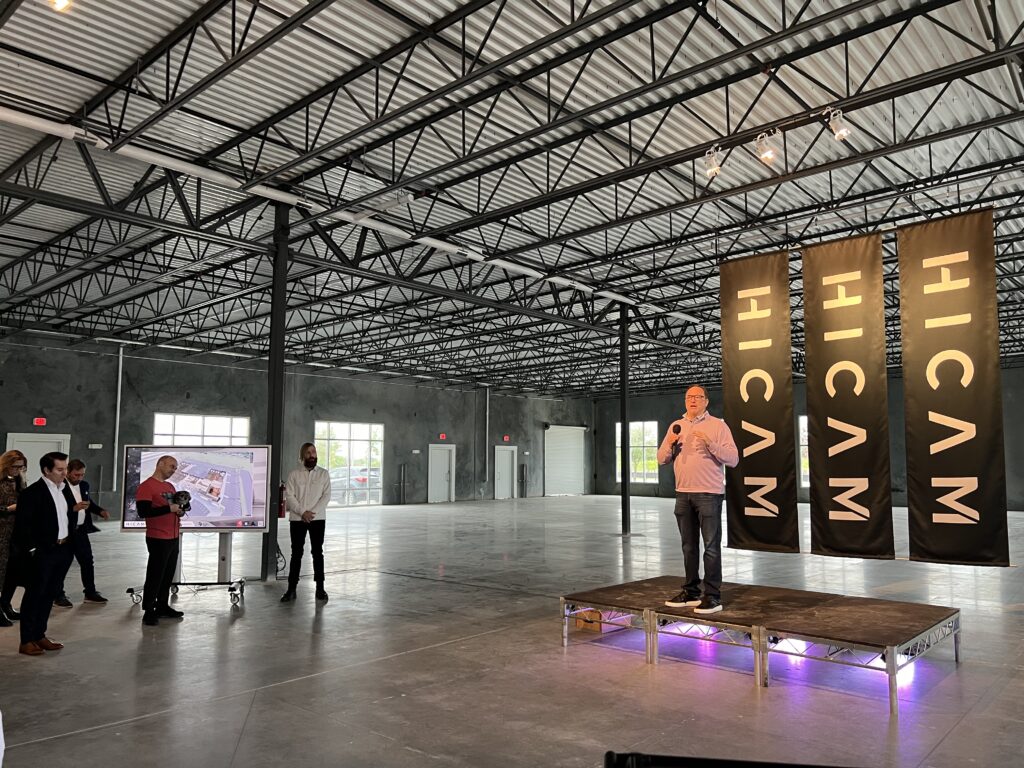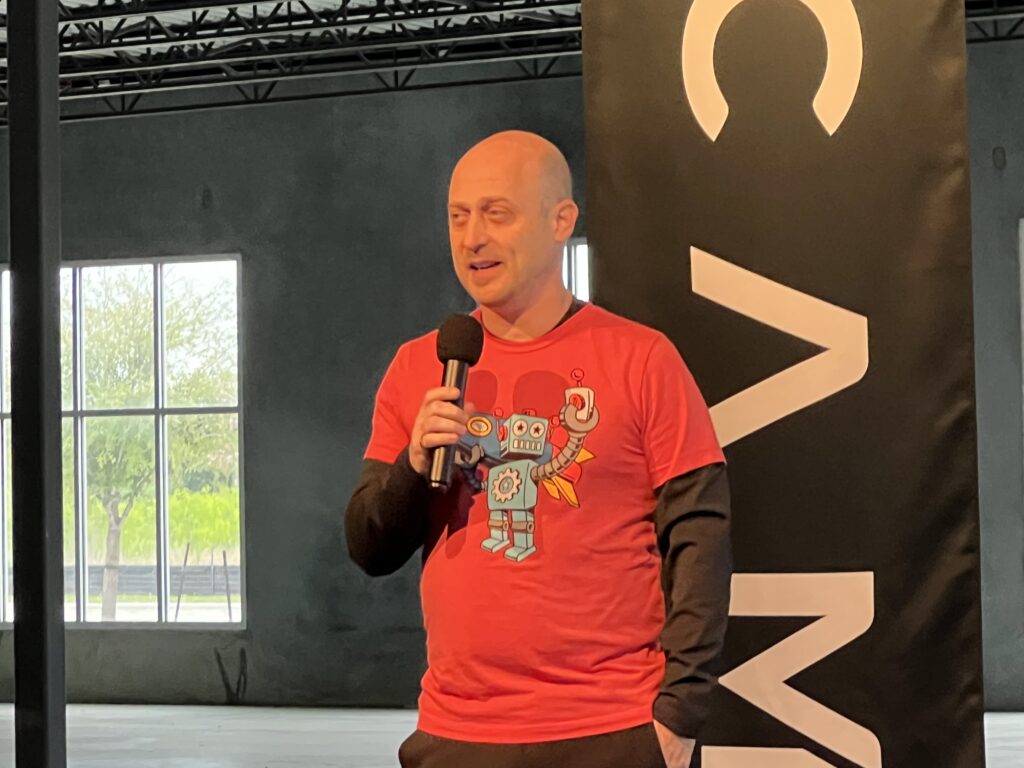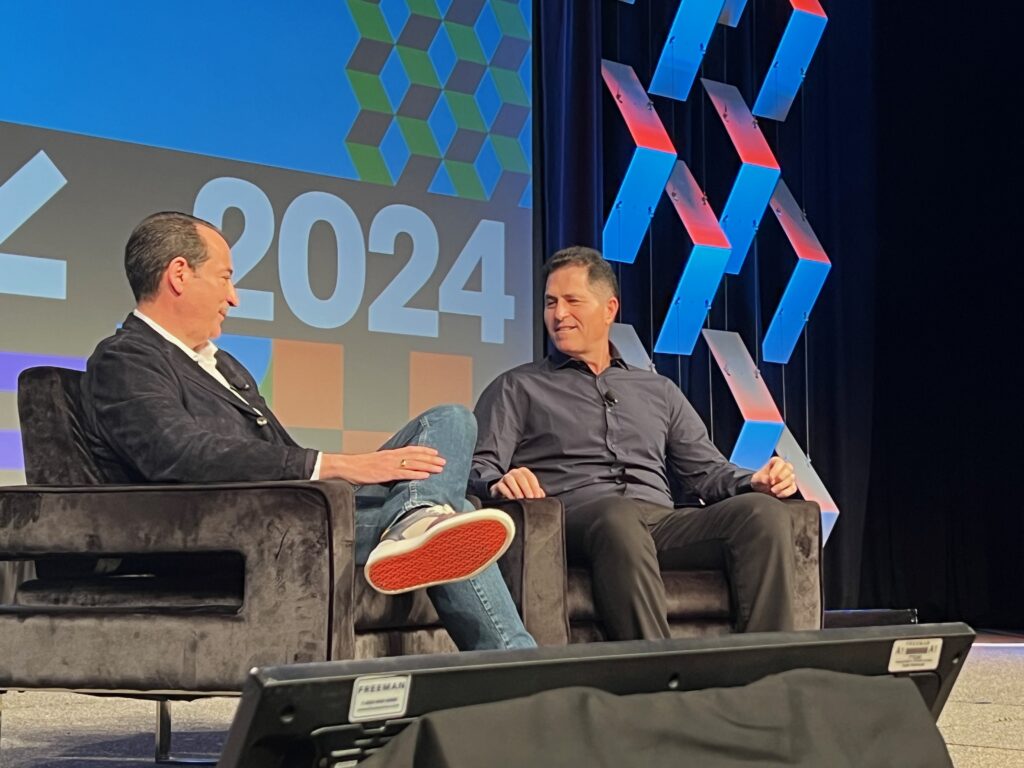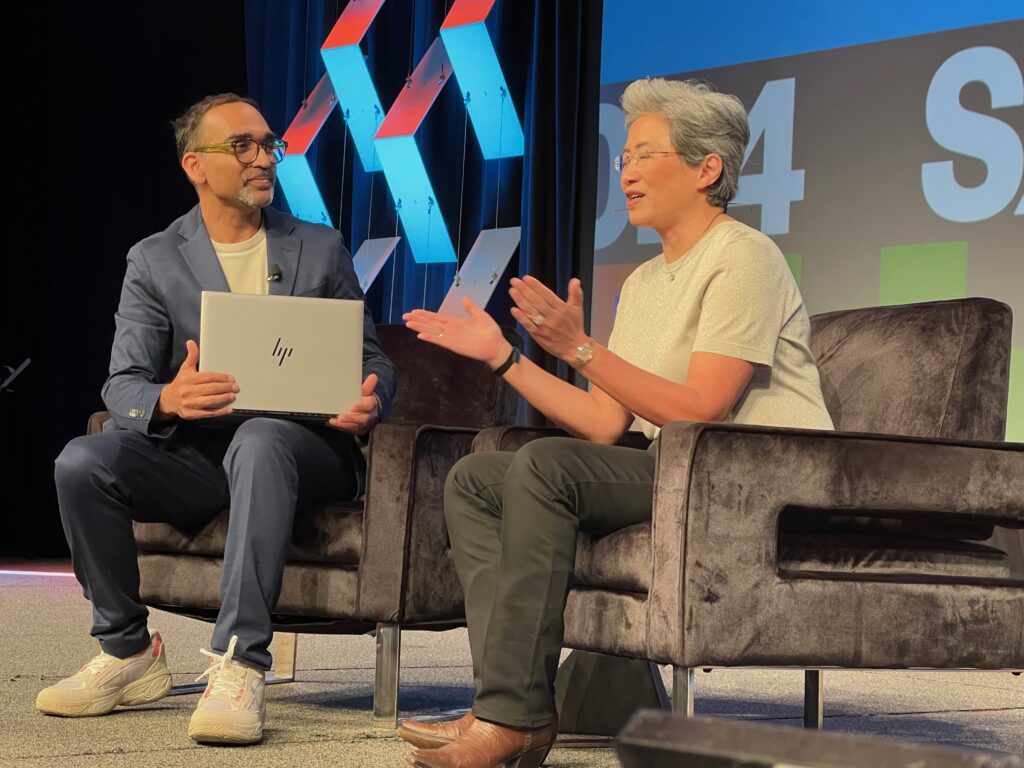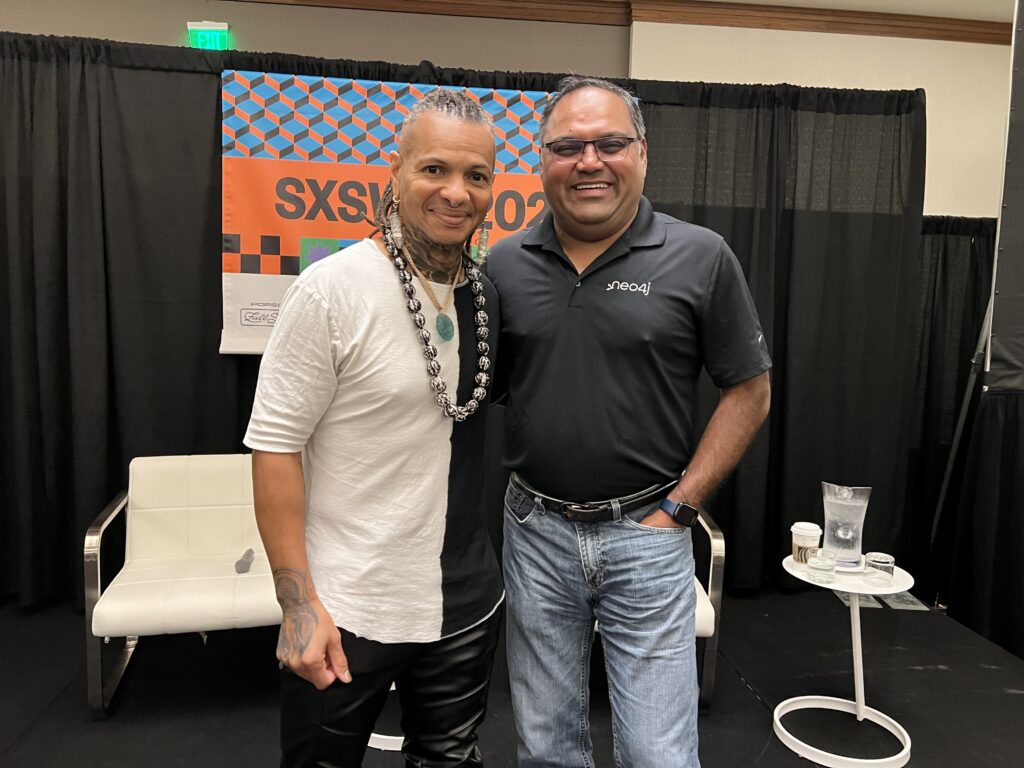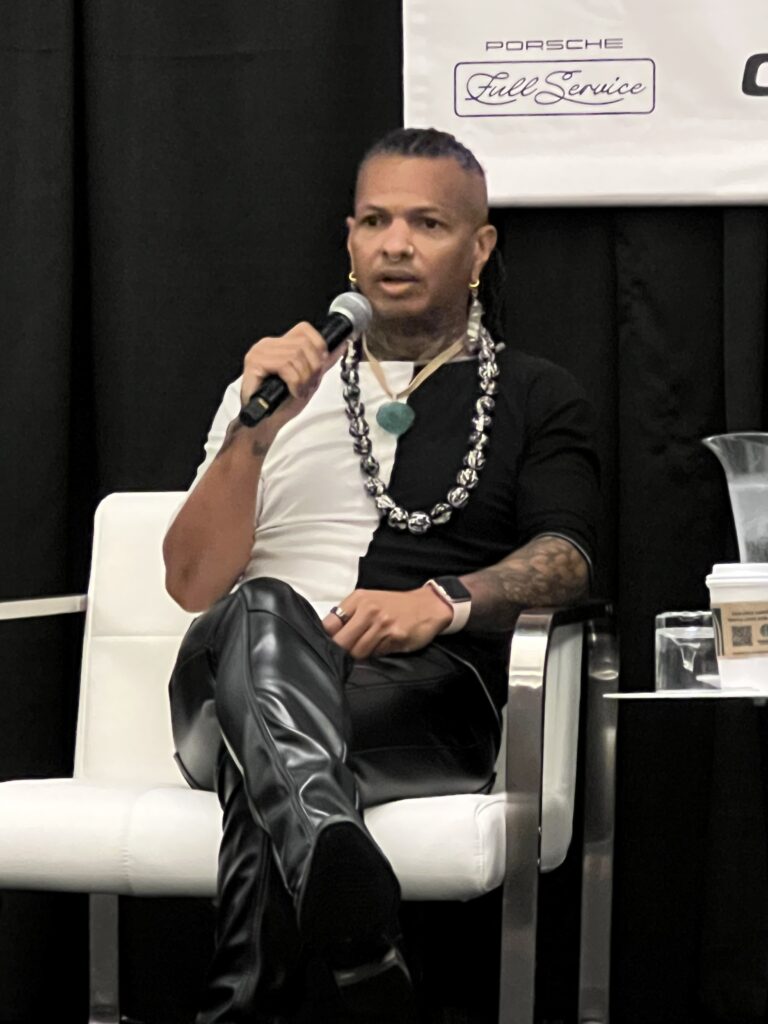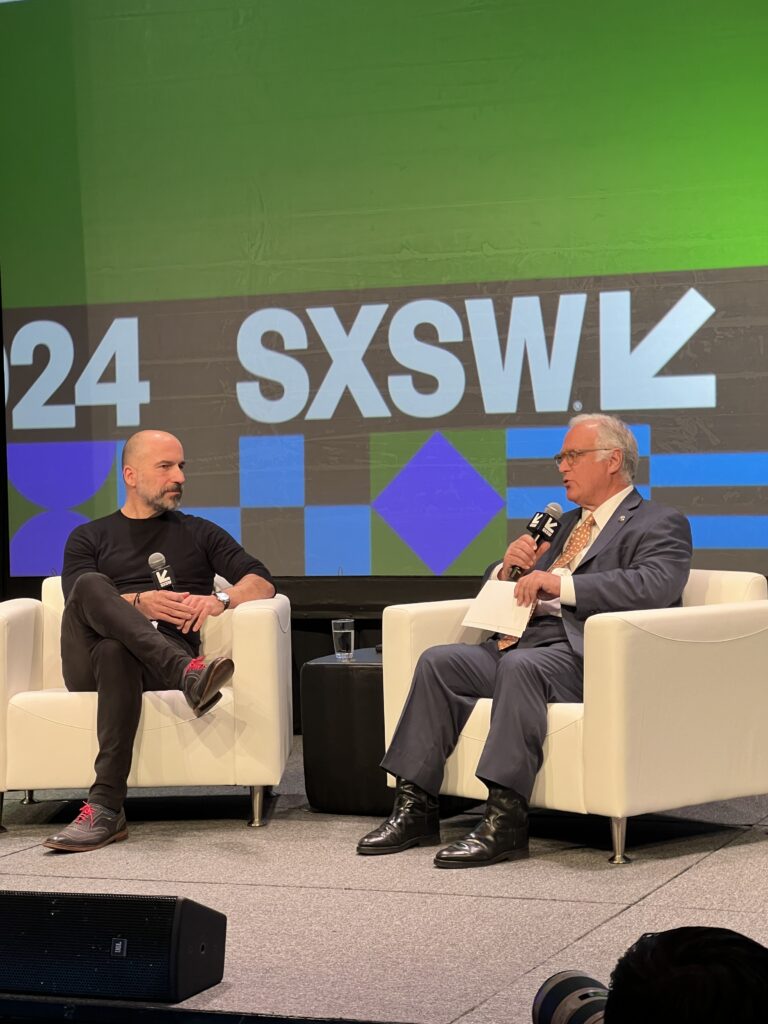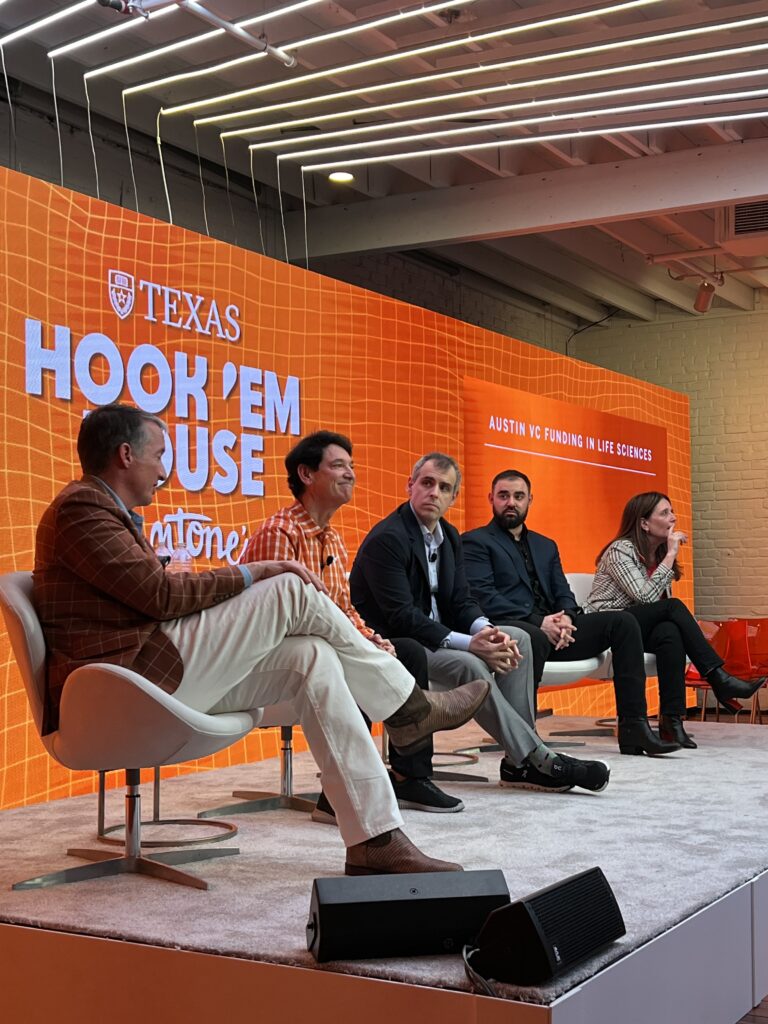At SXSW, Amy Webb’s talk emphasized the significance of identifying and responding to fundamental technological trends, especially those related to AI, the interconnectedness of devices, and biotech.
- Trends vs. Temporary Changes: Webb distinguishes between fleeting societal fads (like fashion and TikTok trends) and significant, long-term trends that show a change in direction over time. She emphasizes the importance of focusing on these impactful trends for future planning.
- The Role of Data and Research: To identify meaningful trends, the Future Today Institute utilizes data, research, signals, and modeling. Combined with an understanding of uncertainties, these elements help predict future possibilities.
- A Unique Moment in Time: Webb feels that the current moment is distinct due to the rapid evolution of technology, particularly in the creation and use of software and the development of generative AI.
- Generational Perspective on Technology: She notes that every generation experiences unique technological advancements and that we are currently witnessing a momentous shift.
- General Purpose Technologies (GPT): Webb identifies three primary areas of technological development—artificial intelligence, the connected ecosystem of things, and biotechnology. She argues that these technologies have become pervasive, influencing every aspect of the economy and society, similar to past GPTs like electricity, the steam engine, and the internet.
- The Technology Supercycle refers to an extended period of heightened demand that leads to substantial economic changes. Unlike past cycles driven by a single technology, Webb believes we are now experiencing a supercycle powered by multiple converging technologies.
- Convergence of Technologies: The convergence of AI, biotech, and the connected ecosystem has led to significant breakthroughs, creating new markets and attracting investments and talent.
- Challenges for Leaders: Webb discusses how uncertainty and short-term planning horizons are crippling decision-makers, leading to fear and a reactive mode of operation rather than proactive, strategic thinking.
- Strategic Foresight: She advocates for a more systematic approach to future planning beyond trend analysis, including scenario planning and strategies that ensure organizational resilience against unforeseen disruptions.
- Accountability in AI: Webb criticizes the lack of accountability in AI development and points out ongoing bias and ethical development issues. She calls for an incentive overhaul and better management of technology’s societal impact.
- Concept to Concrete AI: Looking forward, Webb predicts that AI will evolve from requiring specific prompts to being able to work with broad concepts, allowing for more creative and iterative collaboration between AI and humans.
- Unsecured AI: The talk touches on the risks associated with open-source AI models that lack security, potentially leading to harmful outcomes.
- Need for Regulation and Accountability: Webb stresses the urgency for establishing an accountability chain in AI development, especially as we approach artificial general intelligence.
- The Everything Engine: AI is characterized as the “everything engine” embedded in all aspects of life and services, highlighting the need for comprehensive data to fuel this engine.
- Empowerment and Agency: Despite the challenges, Webb expresses optimism that individuals and organizations can exercise control over their futures by working collectively through the transitions technology drives.
- The Transition Generation: She labels the current generation as “Gen T” (Transition Generation), signifying everyone has a role in shaping a society that will look drastically different after this technological transition.
- AI as the Everything Engine: AI is becoming deeply integrated into all aspects of life and services, a foundational element that improves and streamlines various processes.
- Data Necessity: AI’s growth and effectiveness are heavily dependent on data, and as such, the demand for high-quality, diverse datasets is increasing. We need new types of data beyond text, including sensory and visual data, to train more sophisticated AI models.
- Large Action Models (LAMs): LAMs represent a shift from predicting speech to predicting actions and behaviors. Numerous sensors in our environment will be required to collect the data necessary for these predictions.
- Connectables: This term refers to a network of interconnected devices that collect data to further AI capabilities. This ecosystem will likely expand with wearables, smart devices, and sensors.
- Growth of Devices: There will be an influx of devices, some of which may seem unnecessary or odd until the market stabilizes around beneficial technologies.
- AI-First Devices: New devices are being created to continuously learn from our behaviors in real time, moving us towards more personalized and anticipatory technology.
- Face Computers: Devices like smart glasses will become more common, equipped with numerous sensors to capture detailed information about our environment and behaviors.
- Challenges and Risks: These advancements may have potential downsides, including privacy, security, and socio-economic divides exacerbated by technology.
- Connectables and Large Action Models: These will enable more efficient data collection and AI training but will consume more power and require more advanced hardware.
- Biotechnology Link: AI, connectables, and biotechnology are interlinked, with biotechnology potentially moving us beyond silicon-based computing to more efficient biological systems.
- Generative Biology: Following generative AI, generative biology will allow us to design and create biological organisms and materials, opening up vast possibilities for medicine and materials science.
- Bio Computers: Computers grown from human cells may be the future, raising ethical and practical questions about procuring and using biological materials for computing.
- Actionable Steps: Amy Webb encourages a proactive approach to navigating these trends, including government and business strategies, to manage the transition and ensure societal benefits.
- Fight for the Future: Individuals are urged to become informed and share knowledge to proactively shape the technology super cycle for the good of humanity rather than passively experiencing its effects.

